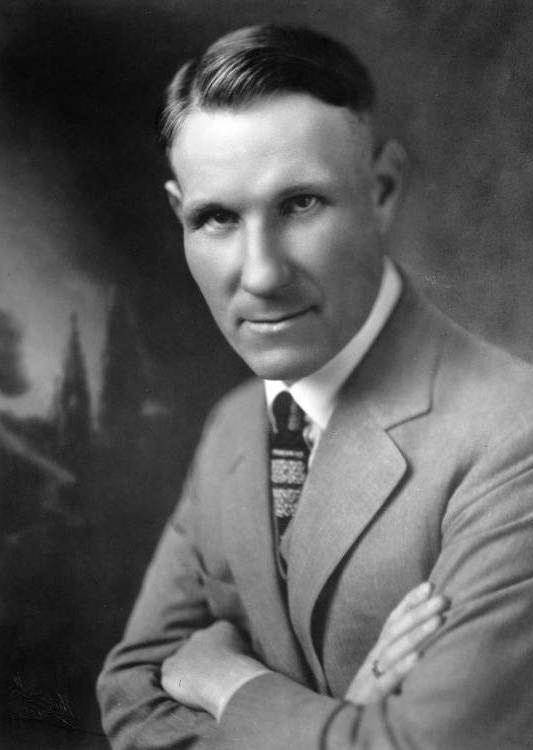
2 minute read
Legend: James E. Casey
James E. Casey
Founder United Parcel Service
James E. Casey - or Jim to those who knew him - was, like all pioneering businessmen of the 20th century, a dreamer above all else. Though he may not be a household name around the world, the company he helped found is, and the brown and gold insignia of UPS is a welcome sight for millions of people and businesses across the globe, every day.
In 1909, at the age of 19, Casey established the American Messenger Company in Seattle, Washington, delivering letters and messages to citizens in the city and surrounding areas. Just six years later, after a merger with a local rival and motorisation through investment in a fleet of Ford Model T motorcars, United Parcel Service was born.
Casey’s ambition led to tremendous growth for the company in the first half of the century. UPS offered air service as early as 1929 - though it was grounded due to lack of demand throughout the Great Depression, returning in the mid 1950s - and by 1975 the company had expanded to offering its services throughout all 48 contiguous states of the USA.
Casey served as the chief executive until 1962, and remained an active board member for almost his entire life, until he passed at the age of 95 in 1983. In the decades following his death, UPS continued to grow and, at the turn of the century in November 1999, went public with a valuation six times that of its main rival FedEx, at the time making it the biggest IPO in US history.
As legacies go, UPS is an impressive business to leave behind - and one that continues to thrive today. But Casey’s impact goes beyond supply chain and logistics, bottom lines and parcels. His belief in supporting the professional growth of the people he worked with is common management practice today, but was a radical approach in the dogeat-dog world of mid-century America, flying at the height of capitalist growth.
This was a philosophy he deeply cared about, and his commitment to those family values lives on long after his death through the Annie E. Casey Foundation - named in honour of Casey’s mother - and other charitable initiatives such as the Casey Family Programs, which aims to improve, and ultimately remove the need for, foster care.





